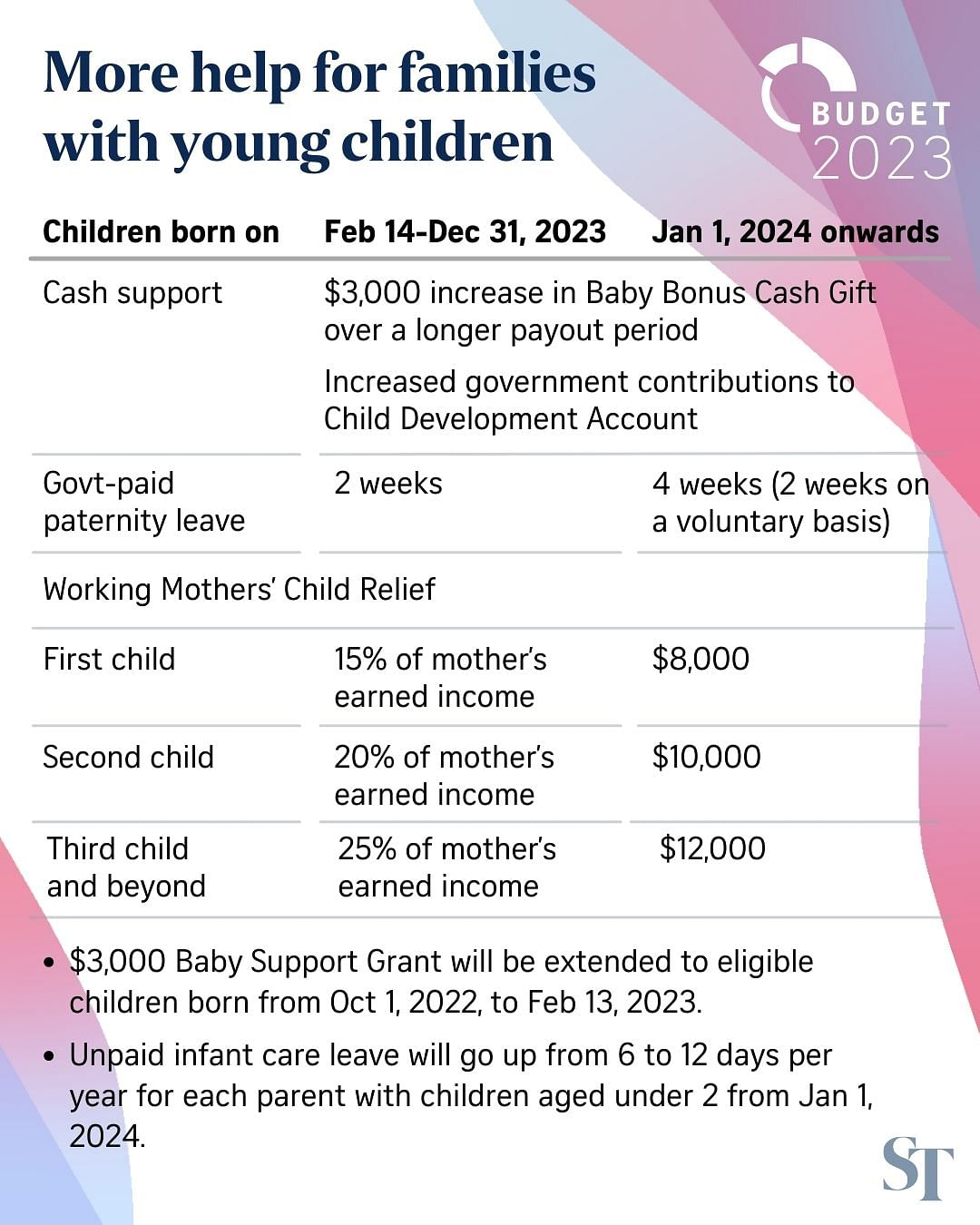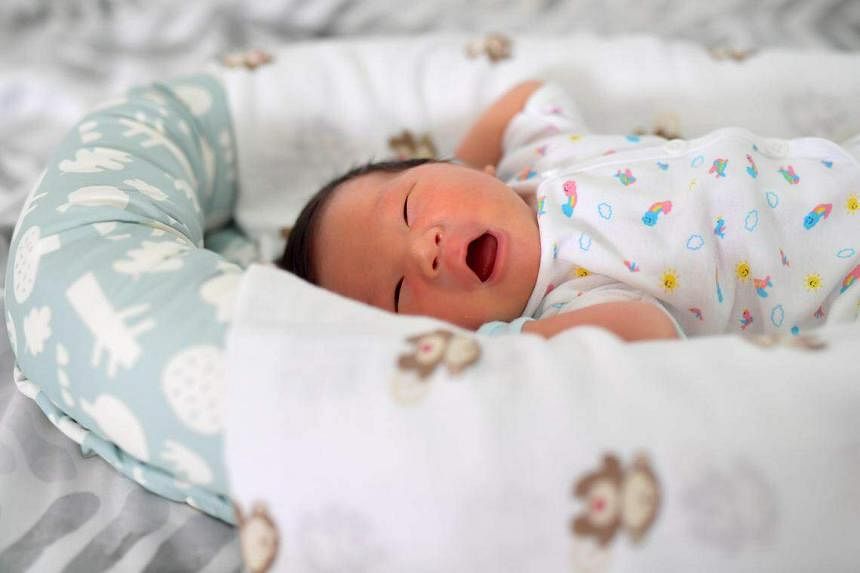SINGAPORE – Baby-boosting Budget measures announced on Tuesday, ranging from more cash gifts and grants to reliefs and paternity leave, are a welcome Valentine’s Day gift to parents and couples who plan to have children.
But they may not move the needle for those who are still on the fence about having a newborn in their lives, said experts whom The Straits Times spoke to.
“Any kind of enhancement would be much appreciated by those who are en route to building a family,” said sociologist Paulin Straughan of the Singapore Management University.
“But it probably will not move the needle too much for Dinks (double income, no kids) who valorise couplehood more than anything else.”
Deputy Prime Minister and Finance Minister Lawrence Wong announced in his Budget speech a slew of measures to strengthen support for Singaporeans on their parenthood journey.
Married couples with Singaporean babies born on or after Tuesday, for example, will get $3,000 more in the form of the Baby Bonus cash gift.
Working fathers of Singaporean children born on or after Jan 1, 2024, can take four weeks of government-paid paternity leave, up from the current two weeks, depending on their employers.
The Working Mother’s Child Relief (WMCR), which aims to encourage women to stay in the workforce after having children, will be changed from a percentage of the mother’s earned income to a fixed dollar relief, for Singaporean children born or adopted on or after Jan 1, 2024.
Associate Professor Simon Poh of the National University of Singapore Business School’s Department of Accounting said that for a long time, high-income working mothers with children who are Singapore citizens were able to save on substantial personal taxes by claiming WMCR pegged to their earned income.
This was typically derived from the exercise of any employment or trade activity.
This will change from the year of assessment 2025.
“With the proposed change to the formula for claiming this relief... this translates to a lower claim for any working mother with an annual earned income of about $54,000 or more,” he said.
“While the much-higher-income working mother has to prepare to pay more personal taxes, the reverse is true for the lower-income working mother, who can now claim a higher fixed quantum of relief.”
Global employer services leader at Deloitte Singapore, Ms Sabrina Sia, said the move is intended to enhance the progressivity of the individual tax regime, as working mothers in the middle-income group will benefit more from having a fixed relief quantum.
“The change to how the WMCR will now be granted, as well as the removal of the foreign maid levy relief, is probably also a recognition that tax reliefs can only go that far in incentivising working mothers to have children and do not really have that much impact in moving the needle.”

Ms Sia added that when the children are born, working mothers need assurance that they will have sufficient childcare support so that they can continue to work, and this may not necessarily be addressed fully just by giving cash or tax incentives.
“Family and childcare infrastructure support is often critical to support working mothers with their childcare journey,” she said.
“The announcement of an increase of paternity leave to four weeks, albeit voluntary for now for the last two weeks, will go a long way to demonstrate the Government’s sincerity in wanting to help working mothers balance having children with their careers.”
Professor Straughan shared Ms Sia’s view that it will take more than financial incentives to persuade couples to have children, or more children.
“It is a reflection of changing expectations of marriage. In the past, people married more for extrinsic reasons (such as financial security),” she said, adding that while many Singaporeans still want to have children, it may not be a priority.
This is not even taking into account the growing number of singles who are not yet married in Singapore, she added.
According to a marriage and parenthood survey released in 2022, although a majority of 80 per cent of the singles aged 21 to 35 polled in the survey wanted to marry, the proportion has been declining over the years.
NUS sociologist Tan Ern Ser said that even if the new measures cannot lead to an increase in the nation’s total fertility rate, they could at the very least prevent its further decline.
“Child-rearing is a long-term commitment, involving time, effort and money,” he said.
“Given the difficult economic and demographic situation we are facing, and are likely to face in future, couples would be reluctant to bring another child into this world, notwithstanding the fact that they may actually love children.”


